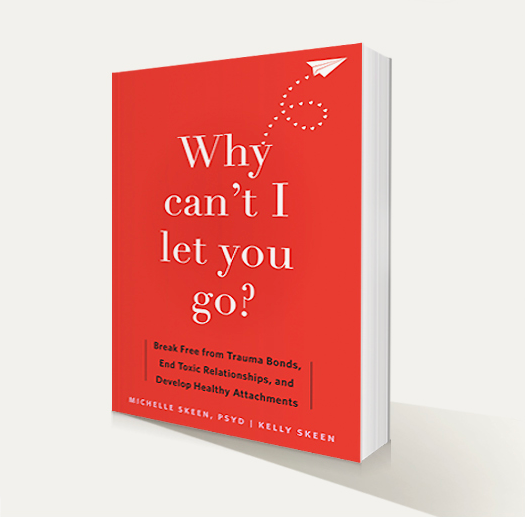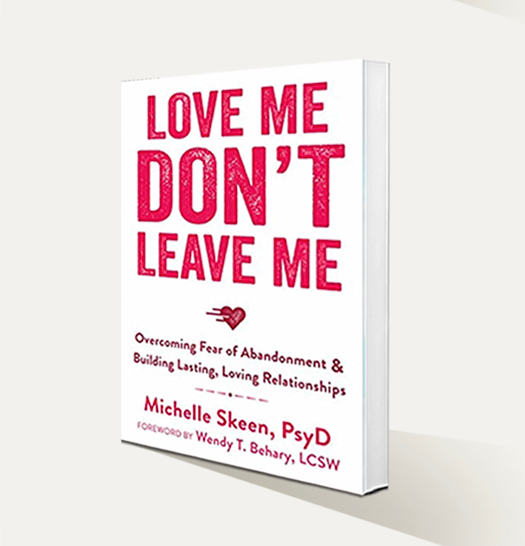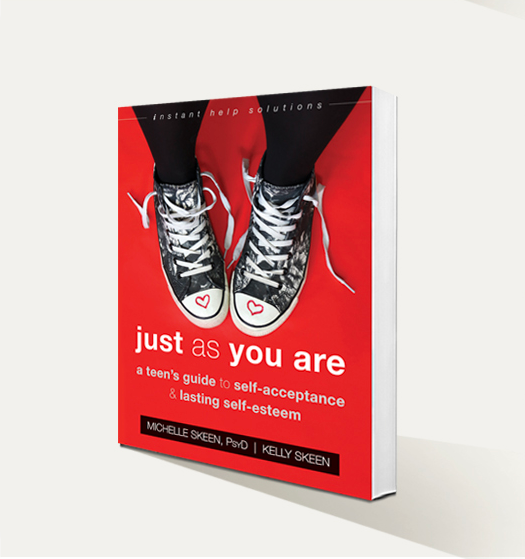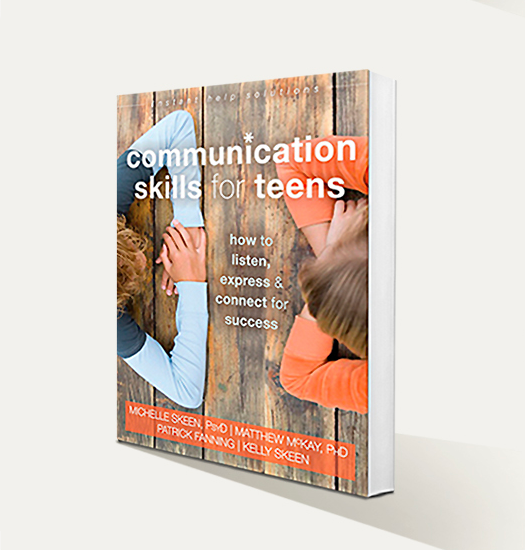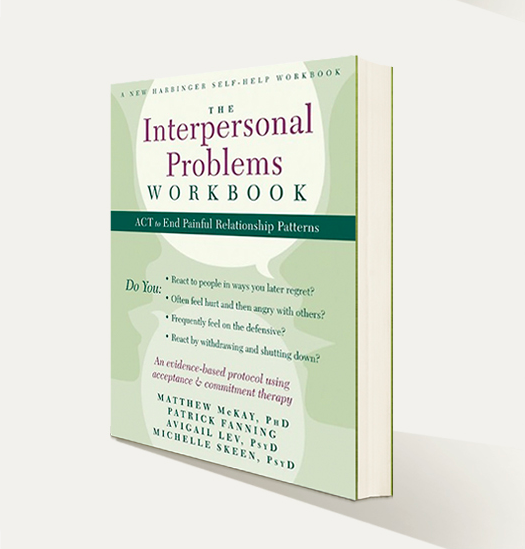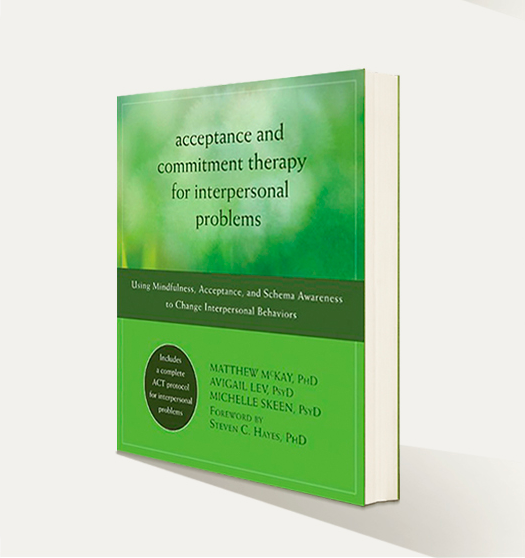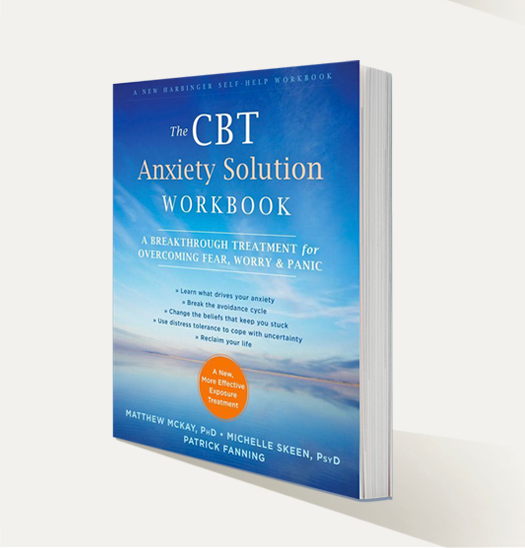My radio show on Thursday April 25, 2019
This week on Relationships 2.0 my guest is Alex Korb PhD author of The Upward Spiral Workbook: A Practical Neuroscience Program for Reversing the Course of Depression
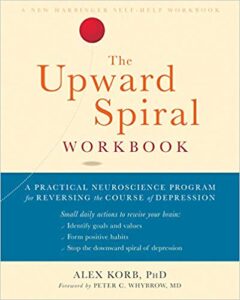 About the book:
About the book:
Positive life changes lead to positive brain changes. Drawing on the huge success of his groundbreaking book, The Upward Spiral, neuroscientist Alex Korb offers actionable, step-by-step skills to help you reshape your brain and create an upward spiral towards a happier, healthier life.
Depression is defined by a collection of symptoms. You feel crappy most of the time. Nothing seems interesting, and everything seems overwhelming. You have trouble with sleep. You feel guilty and anxious and have thoughts that life isn’t worth living. Each symptom reinforces and inspires new symptoms, and this is a sign that your brain circuits are caught in the downward spiral of depression. So, how can you reverse it?
In his first book, The Upward Spiral, neuroscientist Alex Korb demystified the intricate brain processes that cause depression and outlined a practical and effective approach for getting better. Based on the latest research, this evidence-based workbook takes the theory behind Korb’s breakthrough book and distills it into concrete, actionable exercises and skills.
Just as one small trigger can drag you down, an effective intervention can start enough momentum to carry you back up. Exercise, attention to breathing, gratitude, sleep hygiene, and positive social interactions are just some of the offerings in this workbook that can help alter activity in specific neural circuits, setting you on the path toward an upward spiral to happiness and well-being.
About the author:
Alex Korb, PhD, is a neuroscientist who has studied the brain and mental health for over fifteen years, starting with an undergraduate degree in neuroscience from Brown University. He received his PhD in neuroscience from the University of California, Los Angeles (UCLA), where he wrote his dissertation and numerous scientific articles on depression. He is author of The Upward Spiral, and is currently adjunct assistant professor at UCLA in the department of psychiatry. Outside of the lab, he is a scientific consultant for the biotech industry, and is head coach of the UCLA Women’s Ultimate Frisbee team. He has a wealth of experience in yoga and mindfulness, physical fitness, and even stand-up comedy.
My radio show on Thursday November 15, 2018
This week on Relationships 2.0 my guest is Mitch Abblett PhD (PART 2) author of The Five Hurdles to Happiness and the Mindful Path to Overcoming Them
 About the book: A practical approach to becoming aware of the “five hindrances”–the negative qualities that inhibit living the awakened life–and to breaking free of them in order to live more mindfully, effectively, compassionately. Five obstacles stand in between you and true happiness. What are they and how can you overcome them? Buddhist traditions teach that there are five negative qualities, or hindrances, that inhibit people from living an awakened life. Here, Mitch Abblett gives this teaching a modern, secular interpretation and helps you identify the hurdles that are blocking your contentment—desire, hostility, sluggishness, worry, and doubt—and how you can take your first steps to overcoming them. Combining traditional wisdom with contemporary psychology and using examples from his psychotherapy practice, Abblett uses the hurdles as a frame for engaging you in a process of contemplating your own life and learning to lean into your experience rather than merely repeating bad habits. By doing this, you can break free from the hurdles and live more mindfully, effectively, and compassionately.
About the book: A practical approach to becoming aware of the “five hindrances”–the negative qualities that inhibit living the awakened life–and to breaking free of them in order to live more mindfully, effectively, compassionately. Five obstacles stand in between you and true happiness. What are they and how can you overcome them? Buddhist traditions teach that there are five negative qualities, or hindrances, that inhibit people from living an awakened life. Here, Mitch Abblett gives this teaching a modern, secular interpretation and helps you identify the hurdles that are blocking your contentment—desire, hostility, sluggishness, worry, and doubt—and how you can take your first steps to overcoming them. Combining traditional wisdom with contemporary psychology and using examples from his psychotherapy practice, Abblett uses the hurdles as a frame for engaging you in a process of contemplating your own life and learning to lean into your experience rather than merely repeating bad habits. By doing this, you can break free from the hurdles and live more mindfully, effectively, and compassionately.
About the author: Dr. Mitch Abblett is a clinical psychologist, author, consultant and speaker. As a clinician, his services focus on work with children, teens, parents, families and adults with whom he creates solutions for a range of concerns or desired growth areas. A clinician in the Boston area for over 15 years, he brings a wealth of clinical experience from various settings (hospitals, outpatient clinics, residential facilities and therapeutic schools) to his practice. For 11 years he served as the Clinical Director of the Manville School at Judge Baker Children’s Center in Boston – a Harvard-affiliated therapeutic school program for children and adolescents with emotional, behavioral and learning difficulties. He has also served as the Executive Director of the Institute for Meditation and Psychotherapy. As a consultant and speaker, Dr. Abblett empowers changes clients through collaborative, tailored interventions. His consultative and training work focuses on mindfulness, compassion and value-driven action and empowering clients to communicate skillfully and authentically. He improves clients’ school and work effectiveness, reduces the effects of stress, and increases skills for health self-management and daily productivity. Dr. Abblett’s writing includes a mindfulness-based book for clinicians (The Heat of the Moment: Mindful Management of Difficult Clients; WW Norton & Co.), Mindfulness for Teen Depression and Helping Your Angry Teen (both with New Harbinger), five decks of mindfulness practice cards such as Growing Mindful: A Deck of Mindfulness Practices for All Ages: PESI Publishing). His upcoming book, The Five Hurdles to Happiness-and the Mindful Path to Overcoming Them will be released by Shambhala Publications in August 2018. He also blogs regarding mindfulness applications in family and relationships on Mindful.org.
Radio show on Thursday November 1, 2018
This week on Relationships 2.0 my guest host is Shawn T. Smith PsyD who interviewed me about my book Love Me Don’t Leave Me: Overcoming the Fear of Abandonment & Building Lasting, Loving Relationships
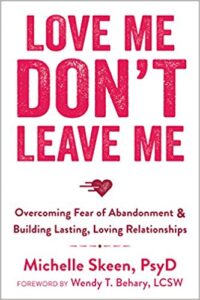 About the book: Everyone thrives on love, comfort, and the safety of family, friends, and community. But if you are denied these basic comforts early in life, whether through a lack of physical affection or emotional bonding, you may develop intense fears of abandonment that can last well into adulthood―fears so powerful that they can actually cause you to push people away. If you suffer from fears of abandonment, you may have underlying feelings of anger, shame, fear, anxiety, depression, and grief. These emotions are intense and painful, and when they surface they can lead to a number of negative behaviors, such as jealousy, clinging, and emotional blackmail. In Love Me, Don’t Leave Me, therapist Michelle Skeen combines acceptance and commitment therapy (ACT), schema therapy, and dialectical behavioral therapy (DBT) to help you identify the root of your fears. In this book you’ll learn how schema coping behaviors―deeply entrenched and automatic behaviors rooted in childhood experiences and fears―can take over and cause you to inadvertently sabotage your relationships. By recognizing these coping behaviors and understanding their cause, you will not only gain powerful insights into your own mind, but also into the minds of those around you. If you are ready to break the self-fulfilling cycle of mistrust, clinginess, and heartbreak and start building lasting, trusting relationships, this book will be your guide.
About the book: Everyone thrives on love, comfort, and the safety of family, friends, and community. But if you are denied these basic comforts early in life, whether through a lack of physical affection or emotional bonding, you may develop intense fears of abandonment that can last well into adulthood―fears so powerful that they can actually cause you to push people away. If you suffer from fears of abandonment, you may have underlying feelings of anger, shame, fear, anxiety, depression, and grief. These emotions are intense and painful, and when they surface they can lead to a number of negative behaviors, such as jealousy, clinging, and emotional blackmail. In Love Me, Don’t Leave Me, therapist Michelle Skeen combines acceptance and commitment therapy (ACT), schema therapy, and dialectical behavioral therapy (DBT) to help you identify the root of your fears. In this book you’ll learn how schema coping behaviors―deeply entrenched and automatic behaviors rooted in childhood experiences and fears―can take over and cause you to inadvertently sabotage your relationships. By recognizing these coping behaviors and understanding their cause, you will not only gain powerful insights into your own mind, but also into the minds of those around you. If you are ready to break the self-fulfilling cycle of mistrust, clinginess, and heartbreak and start building lasting, trusting relationships, this book will be your guide.
About the author: Michelle Skeen, PsyD, has a doctorate in clinical psychology. She is author of seven books, all designed to enhance relationships by emphasizing the importance of identifying core values and valued intentions, limited thinking, mindfulness, self-compassion, empathy, and effective communication and conflict resolution skills. Her passion is coaching individuals in creating and maintaining healthy relationships by bringing awareness to obstacles (fears and beliefs), which often work unconsciously to limit connections with others. Michelle believes that an early introduction and education in core values and healthy communication are essential life skills for success. To that end, Michelle and her daughter, Kelly, coauthored Communication Skills for Teens and Just As You Are. Skeen completed her postdoctoral work at the University of California, San Francisco. She codeveloped an empirically validated protocol for the treatment of interpersonal problems that resulted in two books: Acceptance and Commitment Therapy for Interpersonal Problems and The Interpersonal Problems Workbook. Michelle’s work has appeared in more than thirty publications around the world. She hosts a weekly radio show called Relationships 2.0 with Dr. Michelle Skeen that airs nationally. To find out more, visit her website at www.michelleskeen.com.
My radio show on Thursday August 9, 2018
This week on Relationships 2.0 I’m replaying an interview with David A. Carbonell, PhD author of The Worry Trick: How Your Brain Tricks You into Expecting the Worst and What You Can Do About It. Our chat originally aired in early 2016.
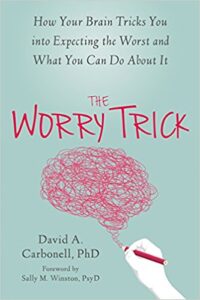 About the book:
About the book:
Are you truly in danger or has your brain simply “tricked” you into thinking you are? In The Worry Trick, psychologist and anxiety expert David Carbonell shows how anxiety hijacks the brain and offers effective techniques to help you break the cycle of worry, once and for all.
Anxiety is a powerful force. It makes us question ourselves and our decisions, causes us to worry about the future, and fills our days with dread and emotional turbulence. Based in acceptance and commitment therapy (ACT) and cognitive behavioral therapy (CBT), this book is designed to help you break the cycle of worry.
Worry convinces us there’s danger, and then tricks us into getting into fight, flight, or freeze mode—even when there is no danger. The techniques in this book, rather than encouraging you to avoid or try to resist anxiety, shows you how to see the trick that underlies your anxious thoughts, and how avoidance can backfire and make anxiety worse.
If you’re ready to start observing your anxious feelings with distance and clarity—rather than getting tricked once again—this book will show you how.
About the author:
David Carbonell, Ph.D., is a Clinical Psychologist who specializes in the treatment of anxiety disorders. He is the founder and director of the Anxiety Treatment Center, Ltd., a small group of psychologists which offers treatment of all manner of fears and phobias at several locations in and around Chicago, and the “coach” at www.anxietycoach.com, a self help web site for people troubled by fears and phobias.Dr. Carbonell is a recognized expert in this field, and has conducted training and seminars for a variety of professional groups, including the Anxiety Disorders Association of America; the International Association of Cognitive Psychotherapy; the United Airlines Employee Assistance Program; the Rockland County and Suffolk County Psychological Associations in New York; the Illinois Alcohol and Other Drug Abuse Professional Certification Association; the Illinois Employee Assistance Professionals Association; the Illinois Psychological Association, the New York Psychological Association; and Northwestern University Medical School, among others. He regularly offers a day-long workshop for professional therapists on the treatment of anxiety disorders at locations around the country, sponsored by Pesi Healthcare, Inc.
Dr. Carbonell is the author of Panic Attacks Workbook (Ulysses Press, 2004) and The Worry Trick (New Harbinger, 2016). He is a member of the American Psychological Association; the Anxiety Disorders Association of America; the Association for Behavioral and Cognitive Therapies; the Association for Contextual and Behavioral Science; the International Association for Cognitive Psychotherapy; the Illinois Psychological Association; and the Obsessive Compulsive Foundation. He is licensed as a clinical psychologist by the States of Illinois and New York.
My radio show on Thursday August 2, 2018
This week on Relationships 2.0 my guest is Kelly Skeen co-author of Just As You Are: A Teen’s Guide to Self-Acceptance & Lasting Self-Esteem
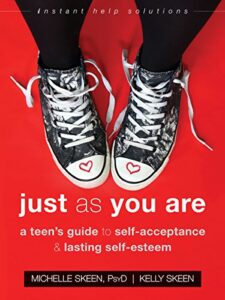 About the book:
About the book:
Stop comparing yourself to others—you’re special just as you are! In this fun, practical guide, you’ll learn how to silence your nit-picky inner critic, cultivate self-compassion, and discover what really matters to you.
If you’re like many teens, you probably feel pressured to live up to the impossible standards set by our culture, the media, and even by your peers. After all, everyone wants perfect hair, a perfect body, cool friends, and good grades. But while it’s okay to strive to be your best, it’s also easy to get caught up in a never-ending comparison game that can feed your inner critic and rob you of your happiness. So, how can you break free from negative self-criticism and learn to appreciate your strengths?
In Just As You Are, psychologist Michelle Skeen and her daughter, Kelly Skeen, offer simple tips to help you overcome feelings of inadequacy and unworthiness, stop comparing yourself to others, and be more open and accepting of all aspects of who you are. You’ll also learn how to be more aware of your thoughts and feelings in the moment using powerful mindfulness tools, and build a plan of action for the future based on your values.
Sometimes it’s hard to see yourself with clarity and kindness. With this important guide, you’ll learn to move past your faults, celebrate your true strengths, and discover what really matters in your life. What are you waiting for?
About the author:
Kelly Skeen is a recent graduate of Georgetown University in Washington, DC. As an American studies major, she concentrated in art and museum studies, and plans to pursue a career expanding access to the visual arts. She is also coauthor of Communication Skills for Teens with her mother, Michelle Skeen. Skeen strives every day for greater self-acceptance and to embrace who she really is! To learn more, visit her website at www.kellyskeen.com.
Does Social Media Feed Your Feelings of Unworthiness?
 By Kelly Skeen and Michelle Skeen, PsyD, authors of Just As You Are
By Kelly Skeen and Michelle Skeen, PsyD, authors of Just As You Are
How many times have you looked at your phone today? 10? 20? 30? 40? If you’re an average tween or teen you’ve looked at your phone 46 times. And, you’ve spent a third of your day using media—Instagram, Facebook, online videos, and music. Maybe you do it without thinking.
Have you ever thought about how all of these images are impacting your beliefs about yourself and others? It’s likely that, knowingly or unknowingly, you are comparing yourself to the images you see on your feeds every day. All of us struggle with some aspect of ourselves. This feeling is reinforced and likely made worse by social media and the constant and ever-changing messages you receive about what you need to do, to look like, and to act like in order to be accepted. It can leave you feeling like you need to hide parts of yourself that aren’t perfect and/or don’t fit within the norm. This by itself feels like a setup for failure.
As you might imagine, your beliefs about yourself are a mixed bag. You probably hold some beliefs about yourself that are positive. Maybe you make friends easily, you have great hair, you are close with your siblings, you excel academically, you’re good at sports, and so on. But you also likely have beliefs about yourself that are negative. In fact, this might mean that you are hiding parts of yourself because you fear being judged, not accepted, or both. You may feel that you are outside of the norm in some way. There might even be aspects of your identity that you have no control over or you don’t like—such as your ethnicity, religion, family, culture, height, eye color, body type…you get the point.
Of course, there is even more of your life that is out of your control, because you have parental figures who control parts of your life that you have little or no say about—where you live, what school you attend, activities you are or are not allowed to participate in, who you can be friends with, who you can date—the list goes on. There’s a good chance that you feel inadequate, flawed, or not good enough as a result of some of these factors.
Every teenager (even the ones that seem perfect!) struggles with feelings of inadequacy, defectiveness, and unworthiness. This impacts your feelings of self-worth, which might be holding you back or getting in the way of satisfying peer interactions and acceptance. Like most people, you care what other people think of you, and you probably spend at least some time comparing yourself to your peers. Social media feeds our natural tendency to compare how we measure up to others. This can result in feeling that you are flawed—not as perfect as other people might seem. When these feelings get repeatedly reinforced over time, it can lead to shame, depression, anxiety, and isolation.
We are all wired to connect with others, and when we do make healthy connections, we thrive. So it makes sense that we would want to be accepted by others, and we would fear being found not good enough and rejected. In fact, you may go to great lengths to avoid judgment or rejection from others. This might include seeking affirmation from others, being unable or unwilling to make decisions without approval from others, or having difficulty hearing even mild criticism.
You may find it difficult to accept and share parts of yourself that are out of your control, or you may feel like you need to be a certain way to be liked and accepted by others. Or you may focus more of your energy on others to distract them from the ways in which you feel insufficient. You may already be thinking about the parts of yourself that make you feel less than, or that you hide from others because you fear the response you might receive. And you might even be aware of the ways this holds you back from realizing your full potential or building the relationships that you long for.
The truth is that you don’t have to keep hiding from others or comparing yourself to others. You are beautiful and perfect just as you are.
Lifelong struggles with feelings of unworthiness and inferiority begin with beliefs formed when we’re teenagers. Just As You Are empowers teens to identify and eliminate these beliefs now, before they take root and cause problems like depression, addiction, and failed relationships in adulthood.
https://www.newharbinger.com/blog/does-social-media-feed-your-feelings-unworthiness
My radio show on Thursday July 12, 2018
This week on Relationships 2.0 my guest is Karen Bluth, PhD author of The Self-Compassion Workbook for Teens: Mindfulness & Compassion Skills to Overcome Self-Criticism & Embrace Who You Are
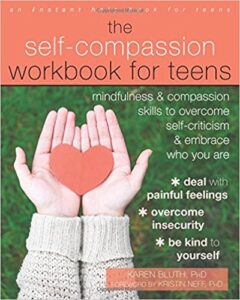 About the book:
About the book:
Your teen years are a time of change, growth, and—all too often—psychological struggle. To make matters worse, you are often your own worst critic. The Self-Compassion Workbook for Teens offers valuable tools based in mindfulness and self-compassion to help you overcome self-judgment and self-criticism, cultivate compassion toward yourself and others, and embrace who you really are.
As a teen, you’re going through major changes—both physically and mentally. These changes can have a dramatic effect on how you perceive, understand, and interpret the world around you, leaving you feeling stressed and anxious. Additionally, you may also find yourself comparing yourself to others—whether its friends, classmates, or celebrities and models. And all of this comparison can leave you feeling like you just aren’t enough. So, how can you move past feelings of stress and insecurity and start living the life you really want?
Written by psychologist Karen Bluth and based on practices adapted from Kristin Neff and Christopher Germer’s Mindful Self-Compassion program, this workbook offers fun and tactile exercises grounded in mindfulness and self-compassion to help you cope more effectively with the ongoing challenges of day-to-day life. You’ll learn how to be present with difficult emotions, and respond to these emotions with greater kindness and self-care. By practicing these activities and meditations, you’ll learn specific tools to help you navigate the emotional ups and downs of the teen years with greater ease.
Life is imperfect—and so are we. But if you’re ready to move past self-criticism and self-judgment and embrace your unique self, this compassionate guide will light the way.
About the author:
Karen Bluth, PhD, earned her doctoral degree in child and family studies at the University of Tennessee. She is currently research faculty in the Program on Integrative Medicine in the Department of Physical Medicine and Rehabilitation at the University of North Carolina School of Medicine. Her work focuses on the roles that mindfulness and self-compassion play in promoting well-being in teens. Bluth was awarded a Francisco J. Varela research award from the Mind and Life Institute in 2012, which allowed her to explore the effects of a mindfulness intervention on adolescents’ well-being through examining stress biomarkers. In spring 2015, she received internal University of North Carolina funding to explore relationships among mindfulness, self-compassion, and emotional well-being in teens in grades 7–12. With current NIH funding, she is part of a research team at the University of North Carolina that is studying the teen adaptation of Kristin Neff and Christopher Germer’s Mindful Self-Compassion program.
In addition to her research, Bluth regularly teaches mindfulness and mindful self-compassion courses to both adults and teens in the Chapel Hill, NC, area and regularly gives talks and leads workshops at schools and universities. In collaboration with Lorraine Hobbs, Bluth has adapted Kristin Neff and Christopher Germer’s Mindful Self-Compassion program for an adolescent population. A former educator with eighteen years classroom experience, Bluth is currently associate editor of the academic journal Mindfulness.
My radio show on Thursday June 7, 2018
This week on Relationships 2.0 my guest is Matthew McKay, PhD co-author of The CBT Anxiety Solution Workbook: A Breakthrough Treatment for Overcoming Fear, Worry & Panic
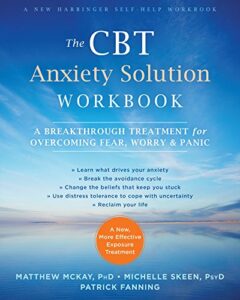 About the book:
About the book:
You are stronger than your anxiety! In this important workbook, best-selling authors Matthew McKay, Patrick Fanning, and Michelle Skeen offer a breakthrough anxiety solution based in cognitive behavioral therapy (CBT) to help you understand and overcome your fears and worries, rather than try to avoid them.
If you suffer from an anxiety disorder, you may try to avoid situations that cause you to feel worry, fear, or panic. You may even believe that terrible things will happen to you if you face the things that make you anxious. But avoidance isn’t a long-term solution, and in the end it may result in more anxiety. This book shows you how the simple belief that you can endure your worries and fears—both mentally and physically—can be an extremely powerful treatment.
Using a breakthrough approach combining proven-effective CBT and exposure therapy, this workbook helps you understand how worry and rumination drive anxiety, and offers practical exercises to help you adopt new habits of observing your thoughts, rather than accepting them as the “ultimate truth.” You’ll also develop mindfulness and self-soothing coping skills to help you manage anxiety in the moment, rather than avoid it. Over time these practices will show you that you are more powerful than your anxiety.
If you’ve been stuck in a cycle of anxiety and avoidance, this workbook will help you make the changes you need to get your life back.
About the author:
Matthew McKay, PhD, is a professor at the Wright Institute in Berkeley, CA. He has authored and coauthored numerous books, including The Relaxation and Stress Reduction Workbook, Self-Esteem, Thoughts and Feelings, When Anger Hurts, and ACT on Life Not on Anger. McKay received his PhD in clinical psychology from the California School of Professional Psychology, and specializes in the cognitive behavioral treatment of anxiety and depression. He lives and works in the greater San Francisco Bay Area.
My radio show on Thursday May 31, 2018
This week on Relationships 2.0 my guest is Michael A. Tompkins, PhD author of The Relaxation and Stress Reduction Workbook for Teens: CBT Skills to Help You Deal With Worry and Anxiety
 About the book:
About the book:
Today’s teens are totally stressed. Based on the self-help classic, The Relaxation and Stress Reduction Workbook, this evidence-based guide will help you develop a game plan for reducing stress so you can focus on reaching your goals.
Are you feeling stressed out? You aren’t alone. Between school, tests, friendships, dating, the latest drama on social media, college applications, and a bunch of confusing physical changes, it’s no wonder that stress is a major mental health issue for many of today’s teens. The good news is that there are simple ways you can reduce your stress and reach your goals. This workbook will show you how.
With The Relaxation and Stress Reduction Workbook for Teens, you’ll learn to understand the underlying causes of your stress. You’ll discover practical mindfulness and breathing techniques to help you calm your mind and body in moments of worry and anxiety. You’ll also find tips for moving past “what ifs” and “shoulds,” strategies for managing negative thoughts and emotions, and tools to help you develop your own personalized plan for dealing with stress.
If you’re ready to move past stress and worry and start focusing on your bright future, this workbook has everything you need to get started today.
Teens need mental health resources more than ever. With over 1.2 million copies sold worldwide, Instant Help Books for teens are engaging, proven-effective, and recommended by therapists.
About the author:
Michael A. Tompkins, PhD, ABPP, is codirector of the San Francisco Bay Area Center for Cognitive Therapy; assistant clinical professor at the University of California, Berkeley; and a diplomate and founding fellow of the Academy of Cognitive Therapy. Tompkins specializes in the treatment of anxiety disorders and obsessive-compulsive spectrum disorders in adults, adolescents, and children. He is author or coauthor of numerous articles on cognitive behavioral therapy (CBT) and related topics, as well as seven books, including three books published by New Harbinger Publications: Digging Out, OCD: A Guide for the Newly Diagnosed, and Anxiety and Avoidance. Tompkins serves on the advisory board of Magination Press, the children’s press of the American Psychological Association. He is a certified supervisor and trainer for the Beck Institute for Cognitive Behavior Therapy and the Academy of Cognitive Therapy. Tompkins has been featured in The New York Times, The Wall Street Journal, on NPR, and has presented over 250 workshops, lectures, and keynote addresses on CBT and related topics.
My radio show on Thursday February 15, 2018
This week on Relationships 2.0 my guest is Corinne Zupko author of From Anxiety to Love: A Radical New Approach For Letting Go of Fear and Finding Lasting Peace
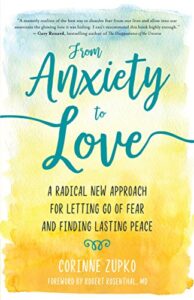 About the book:
About the book:
Author Corinne Zupko undertook her study of psychology out of necessity when debilitating anxiety threatened to derail her life. Seeking ways to do more than temporarily alleviate her symptoms, Corinne began to study A Course in Miracles (ACIM), mindfulness meditation, and the latest therapeutic approaches for treating anxiety. In From Anxiety to Love, she shares what she learned and gently guides you through the process, helping you undo anxiety-based thinking and fostering mindful shifts in your thoughts and actions. Whether struggling with everyday stress or near-crippling discomfort, you will find that Corinne’s approach offers a new way of healing from — rather than just coping with — fear and anxiety.
About the author:
Corinne Zupko, EdS, LPC, has coached, counseled, and educated thousands of individuals at national conferences, in the classroom, in workshops, and in the therapy chair. She teaches weekly meditation classes for corporate clients and cohosts the largest virtual conference of ACIM in the world through the organization Miracle Share International, which she cofounded.












